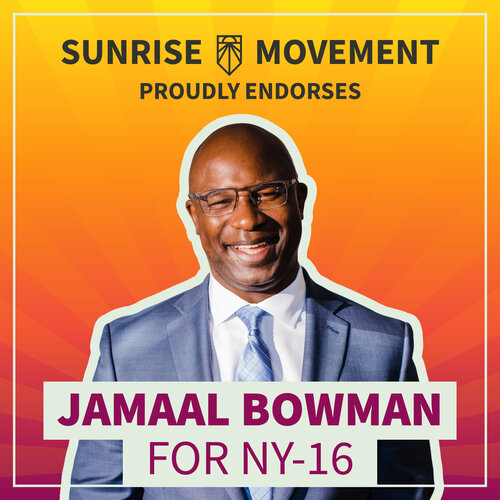What we can do, because Black Lives Matter
"Do more than just sharing an Instagram post. Don't be a performance activist."




A student I follow on Instagram shared this on her story, along with a screenshot of https://blacklivesmatters.carrd.co/. You can find places to donate, petitions, and other resources there to take action.
Since you're reading this, I assume you've already decided to stand against racist acts of violence and the widespread complacency and apathy that lets them keep happening. So this post will focus less on the why, because we already have that from our social media feeds, and more on how we respond.
Fundraising, online advocacy, and protests aren't my usual tactics, personally. I usually stick to volunteering in election campaigns or lobbying members of Congress directly over months and years. But that's when I'm looking for a long-term, legislative response.
Today, things move fast and we need quick, concrete actions to keep up. So let's take a look at these and see why they have emerged as a top priority. Then you can decide which one(s) you are able to do. Not every action is for everybody, but there are many options.
1. Donate
Yes, donating is really important and will have an impact! All the organized, year-round work that activists do is not possible without funding. By donating, you can make a difference not just for a day, but in the future even if you don't take daily action in the movement yourself.
If you are able, contributing to the GoFundMe sites for victims' families or bail funds is a good start. Monthly contributions to organizations that advocate year-round or provide services directly to communities are fantastic, because that allows groups to use their resources most effectively throughout the year.
As a teenager without a job, I don't really have much money to give, but I've been having conversations with my mom, who is looking for somewhere to donate. I can use my influence that way.
2. Protest
This one tends to be more controversial than donations or contacting government officials. I want to acknowledge that. Here's why I think protests are being used as the most prominent change-making tool right now.
For something as big as Black Lives Matter, behind-the-scenes organizing isn't enough. You need to grow a visible movement that becomes ingrained in every person's consciousness. That is achieved with gatherings of solidarity, protests that force observers to think, and powerful, lasting images.
Protesters right now know exactly what they're doing, and they're using the tools they have to call for action. There's definitely risk associated with protests, more so than signing petitions from the comfort of your own home. [Update: I did attend a protest on June 5, a peaceful march through an area of wealthy suburbs. It was really well-organized, and played out like a tour of privilege for the white participants as we walked past huge homes with well-kept lawns as well as a private school-- impactful, yet different than the protests you'd usually see on the news. The biggest danger at this gathering was the COVID risk as people started taking off their masks in the hot sun, so otherwise it felt really safe. That's a privilege many protestors don't have as they stand up for their human rights.]


Even if you're not at a protest, we can support their cause by taking an active role in shaping the narrative around them, keeping it true to the facts. This is important not just today, but for all demonstrations in general.
-What are the protest's goals?
-What do we know is happening for sure? Which details are unconfirmed or disputed?
-How are the protesters characterized in the media? What role does race play in that characterization?
-How does coverage of Black Lives Matter protests compare to the coverage of (sometimes armed) protests against COVID lockdowns?
-And for each question above, the follow-up question: why?
3. Petitions
If you need a bill passed into law, petitions are not the way to go, if that's your only action. People in power know that it takes each person less than a minute to sign. But for putting pressure on a targeted demand, like the firing of a specific officer, it makes sense as a way to quickly direct nationwide outrage for the (hopefully) long run. In some ways, they can even exert some influence on a specific decision.
Petitions are an organizing tool that allows a movement to collect the names of supporters. Ideally, it has many benefits like an increased pool of potential donors and activists, who are inspired by seeing their name join thousands more and want to do more.
The way I view petitions is that it's a great start, but your action shouldn't stop there. Websites that offer petitions will make it very easy for you to take the next step. You will have opportunities to share the petition with others and maybe receive an email to follow up. Do those next steps! (Donate to victim's families, bail funds, and advocacy organizations instead of change.org, though, so that your money can help directly).
----------------------------------------------------------------------------------------------------
4. Going forward, some long-term commitments
You can engage with movements fighting for justice all year long as a volunteer. Myself, I'm proud to be phonebanking with Sunrise for Charles Booker and Jamaal Bowman, two phenomenal candidates running for Congress to make real, positive changes in the country and represent their communities. You can learn more and join me at https://www.sunrisemovement.org/endorsements. And that's just one example! There are so many places to volunteer, even virtually, while sheltering in place.


And when you've taken your actions, keep reading and keep learning. As advocates, especially white advocates like me, it is never our job to be a "voice for the voiceless" and make assumptions about how to be helpful. Instead, we use our privilege to pass the mic to the already powerful voices speaking out. So we must listen, learn, and amplify.
It's not a person of color's job to educate their white friends; it's up to white people to put in some effort. But a starting place isn't hard to find! People are writing about racism and all forms of discrimination every day, including my friend Santi, whose words from back in March resonate with me even more today.
The country is hurting, and will keep hurting until some profound changes are made in our society. So please take some actions.
Rest in Power, George Floyd, Breonna Taylor, Ahmaud Arbery, and every life that's been unjustly taken.



Good post . The practise of soliciting and accumulating voluntarily made financial donations from individuals, businesses, and other organizations is known as fundraising .
ReplyDelete